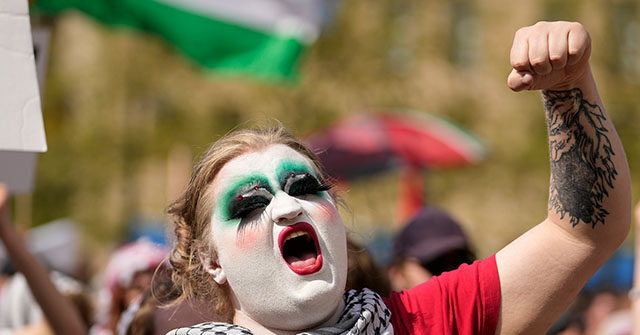Voters in Cunningham Township, located in central Illinois and notably home to the University of Illinois, will be presented with a controversial ballot question during the upcoming election. This referendum asks whether the United States should cease its military aid to Israel, a country that the ballot labels as an “apartheid regime.” The issue has gained attention due to its significant political implications and the deeper moral questions surrounding U.S. foreign policy. The referendum emerged under a little-known provision from the mid-19th century that enables residents to propose advisory questions to be discussed and voted on during the annual Township Meeting. This provision has sparked debates about local governance’s role in shaping national policies.
The process of placing this question on the ballot is interesting, as it requires a simple majority vote from those physically present at the Township Meeting. While Cunningham Township decided to move forward with the ballot question—resulting in a 76-40 vote in favor—other nearby townships, such as Peoria and Capital, rejected similar proposals. The rejection was significant; in Peoria, the count was 67 to 93 against, and in Capital Township, the question did not garner enough support, with only 17 voting in favor versus 56 against. This divergence highlights not only the varying political landscapes of the respective townships but also a critical examination of community attitudes towards Israel and U.S. foreign aid.
In tandem with the ballot question, the City of Urbana, which overlaps with Cunningham Township, passed a Ceasefire Resolution earlier in March 2024. This resolution echoes sentiments found within the proposed ballot question, calling for an end to military funding directed toward Israel, currently estimated to cost U.S. taxpayers approximately $3.8 billion annually. Proponents of the resolution argue that such funding perpetuates human rights violations and aligns with a global acknowledgment of Israel as an apartheid regime. The resolution represents a growing grassroots movement advocating for Palestinian rights and signaling a shift in local governance towards addressing international human rights issues.
However, despite the enthusiasm surrounding this ballot question and the Ceasefire Resolution, it is essential to recognize the limitations of such measures. The resolutions passed at the township and city levels lack binding authority over federal policies, including foreign aid allocation. Local government bodies in Illinois do not possess the jurisdiction to influence state or federal spending decisions. Therefore, while the ballot is a symbolic gesture and reflects the views of a segment of the community, it serves primarily to raise awareness rather than enact tangible change in U.S. foreign policy.
The atmosphere surrounding such initiatives is often influenced by broader societal dynamics, including the heightened visibility of pro-Palestinian movements on college campuses. The University of Illinois has witnessed various protests and activism aimed at critiquing Israel’s policies and promoting Palestinian rights. This activism sometimes manifests in encampments and organized demonstration efforts which have drawn both support and criticism from different factions of the community. Such events contribute to the discourse around the perception of Israel in American society and can motivate local political actions, such as the ballot question in Cunningham Township.
As the upcoming election approaches, the implications of the Cunningham Township ballot question will capture attention beyond local circles. It encapsulates a broader dialogue about international relations, moral obligations, and community dynamics in an increasingly polarized political landscape. The outcome will not only reflect the opinions held by township residents but may also inspire similar movements in other parts of the country, provoking discussions about the role of local governance in shaping U.S. positions on complex global issues. This scenario underscores the importance of public engagement in political discourse and the ongoing evolution of grassroots activism in effecting change, even when the paths to achieving such change may be fraught with challenges and limitations.

